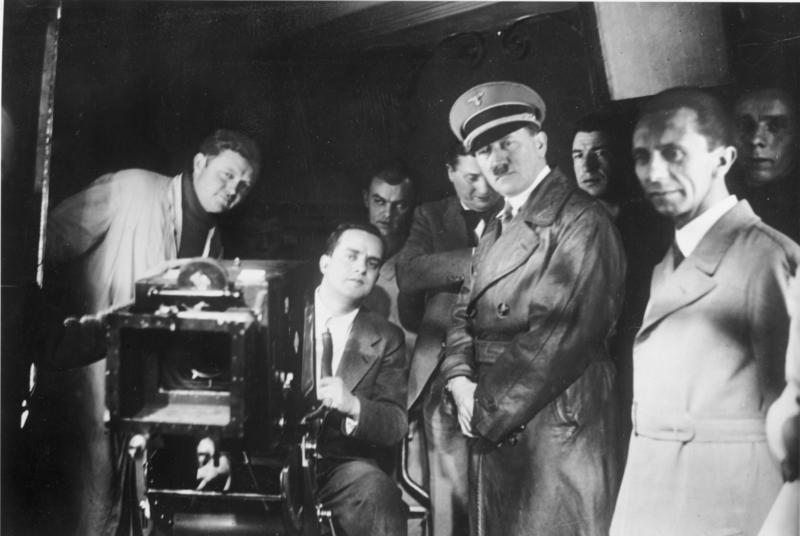O
ne summer ago, before the region’s fish and chip industry was shaken by closures, before a death that was hard for people to bear, a lorry heaped with the first fresh potatoes of the season drove along the east coast of
Scotland. This lorry wound its way along the East Neuk of Fife, dodging washing lines, mooring bollards and seagulls, parking with impunity to make deliveries. There was an understanding in the East Neuk that nobody would ever get angry and honk at the inbound “tattie” lorry, fish and chips being a staple meal, vital to the region’s economy. Tourists come shocking distances to sit on old harbour walls and stab around in takeaway trays with wooden forks. The fish and chips sold in the East Neuk might be the best in the British Isles and because of that (it follows) the best on the planet. Even so, by July 2022, local friers were finding it harder and harder to balance their books.
The driver of the tattie lorry, a red-cheeked Scotsman named Richard Murray, carried keys for most of the businesses on his route, to save from waking any tired friers who’d been up late the night before, poring anxiously over their sums. War in Ukraine coupled with ongoing complications from Brexit had driven up prices of almost all the goods that fish and chip shops depended on, from live ingredients to oil and salt to packaging. More distressing was the problem of rising energy costs. This meal is prepared using a great guzzler of a range cooker that must be kept on and roiling at all hours of a trading day. As the price of gas and electricity threatened to double, then triple, through 2022, friers were opening their energy bills with gritted teeth. A trade association called the National Federation of Fish Friers said that as many as a third of the UK’s 10,500 shops might go dark, warning of a potential “extinction event”.
It was about 8am when Murray drove his tattie lorry into a village called Pittenweem. He was met on the road by Alec Wyse, a skilled frier, 59 years old and known as Eck, who ran a takeaway called the Pittenweem Fish Bar. The tiny shop had been bought by Wyse’s father using money from the sale of a family fishing boat. There were nautical portraits on the walls. A peg-letter menu listed eight unchanging menu items, one of which was described in its entirety as “FISH”. Working together, Wyse and Murray unloaded sacks of potatoes from the lorry, carrying them inside on their shoulders.
A mile along the shore from Pittenweem, in the smarter harbour town of Anstruther, Murray parked his lorry outside a fish and chip shop called the Wee Chippy. Founded by Ian Fleming, a 64-year-old seafood trader with a tattoo of a shark on his forearm, the Wee Chippy stood across from a seaweed-covered strip of beach and a cobbled jetty. Fleming later told me it ruined his marriage, this fish and chip shop. “The hours,” he growled in explanation. Daily operations had long since passed to his business partner, a chef in his 40s called Chris Lewis. But Fleming kept a close eye on the Wee Chippy, which had absorbed such a big part of his life.
Leaving Anstruther behind, the tattie round almost done, Murray swung his lorry inland, in the rough direction of Dundee and a fish and chip shop called the Popular. Bright and cramped, the Popular had an eye-catching facade that was painted brown and baize green, making it resemble a snooker table turned on one side. A family concern, the Popular was staffed six days a week by a man called Graham Forbes, his wife Angela, and their two adult children. Though Forbes was in his mid-70s, he was the one who rose early to let the tattie man in. He liked to get started at about the same time the sun came up, feeding potatoes into the Popular’s rumbling peeler.
The harbour in Anstruther. Photograph: Murdo MacLeod/The Guardian
These three businesses – the Pittenweem Fish Bar in Pittenweem, the Wee Chippy in Anstruther, the Popular in Dundee – shared not only a potato supplier but the near-religious devotion of the communities they serviced. They were run by men and women who had thick skins, literally so when it came to their fingertips, which had become so desensitised to heat that they could be brushed against boiling oil to better position a fillet of frying fish or test the readiness of chopped potatoes as they fizzed and crisped. But these people were not invulnerable to strain. By the following summer, two of the three businesses would be gone, forced to close against their owner’s will.
I visited the East Neuk several times during that difficult year: in high tourist season, in the eerie quiet of winter, in the limbo between. As a national industry foundered, I wanted to document what it was like for a group of friers as they were brought to the brink, competing against each other even as they helped each other out, always prepping for tomorrow, cooking for today, running their numbers at night, trying not to become yet another fish and chip shop that disappeared. Between July 2022 and July 2023, things got tougher and sadder in the East Neuk than anybody predicted they would. By the time I made my last visit, people were in mourning, having said goodbye to a beloved local figure who gave their all to a cherished, suddenly endangered trade; and it was no longer so difficult to imagine a world without fish and chips.
T
he origin question, wrote the
historian John Walton in his definitive history of the dish, “is a matter of murky and probably insoluble dispute”. Should Londoners take the most credit for its creation and proliferation, or Lancastrians? The textile towns around Manchester or the fishing ports of Scotland? Undoubtedly, fish and chips is immigrant food, imported, perfected and perpetuated by a mish-mash of refugees and others originating from Portugal, Spain, eastern Europe, Italy, Cyprus, Greece and China. The method of deep-frying white fish in a liquid batter made of flour and egg or milk was likely brought over to London by Jews in flight from Catholic inquisitors. Walton and other food historians have identified chipped potatoes “in the French style” being sold from carts in the industrial Pennines as early as the 1860s.
Whether styled as chippy, chippie, chippery, chipper, fishery, fish bar or fish restaurant, whether given cheerful punning titles (the Haddock Paddock, the Plaice to Be) or rootsier names that acknowledged their founders (Jimmy’s, George’s, Low’s, Long’s), these shops proliferated through the 20th century, carpeting the land from the northernmost – Frankie’s, up in Shetland – all the way to the Smugglers, down on the tapering tip of Cornwall. The fundamental cooking method is always the same. Fillets of white fish, usually haddock or cod, are slapped about in a viscous yellow batter before being dropped into 180C baths of oil. An experienced frier will tend their bubbling fillets compulsively, using a metal strainer to turn and tease the food as the batter flares and hardens, basting with twitches of the wrist. After about five minutes, the battered fish will be golden, curved in on itself like a banana, firm enough to be set atop chips without surrendering its shape.
As for the chips, these are made from white potatoes, peeled and cut to the thickness of thumbs, then placed in a steel basket and submerged in the same hot oil until they will crack apart when squeezed. There is resistance in Scotland towards the frying of cod, which is seen as an English lunacy, but it is generally accepted that potatoes grown in the drier soil of England do better when fried, being lower in glucose and less likely to caramelise. National pride stretches so far. Only not so far as brown chips.
Chips from Murray Cameron’s chip van. Photograph: Murdo MacLeod/The Guardian
Ideally, just after eating a portion of fish and chips, you should be aware that what you’ve put inside your body was prepared using ungodly quantities of grease, yet you don’t yourself feel greasy. This paradoxical richness without grossness, an angelic lightness of touch in preparing one of the heaviest meals on Earth, sets the better shops apart. At the Golden Galleon in Aldeburgh, takeaways are lined up in paper pouches on the counter, the fish tumbled in with the chips, all to be eaten with a rooting fork. At the Ashvale in Aberdeen, the hungriest diners can order a “whale” portion, so huge that anyone who finishes it unassisted wins a prize. Along a particular stretch of pavement in Holborn in London, pedestrians walk headlong into a bubble of airborne fat that seems to enclose a shop called the Fryer’s Delight. They fry in beef dripping at the Delight, not vegetable oil, creating a flavour that is fattier, more unctuous.
At the Popular in Dundee, Graham Forbes and his family cooked using beef dripping as well. Sit-in diners at the Popular huddled into wooden booths, sometimes packing so close, Forbes told me, that if those at table #1 were talking politics, those at tables #2 and #3 were inevitably talking politics as well. He tended not to think of the Popular as a business. It was a little world. And like any world, it had its points of pride, its stubborn habits.
One day I spoke to a man up the supply chain who oversaw the weekly tattie runs through the East Neuk. His name is Conor Booth. He works for a Scottish company called John Callum Potatoes. Booth explained that the top fish and chip shops are kept consistent by generations of rolling tradition. But many of those traditions (the dawn calls to prep ingredients, the midnight equipment-scrubbing, the reliance on inefficient cookers) have made willing staff scarcer and costs harder to bring down. “Every industry has to adapt to survive,” said Booth. “Unfortunately, in fish and chips, there’s only so much you can do while keeping it traditional. The potatoes need their peeling. The fish needs its frying.”
Last year, as trading conditions worsened, proprietors were giving interviews to local newspapers, explaining the pressures they were under. These communications tended to have the tone of panicky messages scribbled by hostages. At the Crispy Cod in Worcester, they said: “It feels like we have no control.” The Gipsy Lane Chippery in Leicester: “It’s scary.” Paddy’s Plaice in Criccieth: “Need help.” In the town of Macduff in Scotland, a shop called the Happy Haddock received a bill that put up its energy costs from £600 a month to £2,000. The Happy Haddock closed. Roughly the same thing happened at the Fryar Tuck in Belfast, then at Barnacle Bill’s in Somerset, and Chip Ahoy on the Isle of Wight. At Chung’s Chinese Chippy in Lancashire, a note to customers appeared in the window, similar in substance to the messages put on display at Stefano’s in Glasgow and chalked on a blackboard outside Jones Plaice in Caldicot: “Due to excessive price increases in all areas, raw materials, labour, fuel and utilities, we have decided to close.”
At the Popular in Dundee, the Forbes family issued a plea to customers via Facebook: “Use us or lose us.” Graham Forbes’s son Lindsay had already given an interview to a Dundee newspaper that amounted to a forewarning of closure. A clipping of this article (“CHIPPERS ARE BATTERED BY SOARING COSTS”) was pinned to the Popular’s fridge on the summer day the family huddled to make a decision. “This is the end,” Graham said, “isn’t it?” They telephoned the Dundee newspaper again, which published a story confirming the Popular would close after 35 years. Graham’s daughter Gaynor put an announcement online. The next day, “as soon as we opened the doors at 11.30am,” Graham said, “we were mobbed. Generations of customers. Grandparents. Grandkids. People asked, why? I told them the enjoyment had gone out of it, from worrying all the time. I told them, if you’d kept coming, even just once a fortnight, it might have been different.”
B
efore the main danger to fish and chip shops was the quarterly energy bill, it was sudden fire. Ignored for a moment, the hot cooking fat can get
too hot, rising to an auto-ignition point and exploding. In a single year – 2018 – there were serious fires at
Old Salty’s in Glasgow, the Admiral in Overseal, Mr Chips in Fakenham, the Pilton Fryer in Pilton, the Fish Bar in Fenham, Crossroads in Kingstanding, Graylings in Fremington, the
River Lane Fish Bar in Norfolk, the Portway Fish Bar in Rowley Regis, Bruno’s on Canvey Island, Jimmy’s Palace in Liverpool,
Scoffs in Paignton and Moby Dick in Shirley. “Doesn’t matter how experienced you are,” said Chris Lewis, one of the owners of the Wee Chippy in Anstruther, “if something mechanical goes, or something catches, and you haven’t seen it – that’s it, that’s your time.”
The Wee Chippy’s time came on Remembrance Sunday in 2018, in the middle of a lunch service. A frier was distracted; the oil in the range ignited; a huge ball of fire was sucked into the Wee Chippy’s ventilator, leaving just enough time for staff and customers to flee before the ground floor was thick with smoke. In the subsequent blaze, unpeeled potatoes from the tattie lorry blistered and shrunk in their sacks. About 100 North Sea haddocks cooked inside a fridge. Jars of pickled eggs boiled and burst. Lewis and Ian Fleming, who both live nearby, came running. They watched from across the harbour road as the glass in the windows of their shop began to melt and pulsate. Jets of orange flame licked out the chimney pots.
The Wee Chippy, Anstruther, in 2023, after it reopened following a fire in 2018. Photograph: Murdo MacLeod/The Guardian
Fleming (he of the shark tattoo) had opened this fish and chip shop in 1999, in perverse defiance of the fact that there was already a popular alternative, the Anstruther Fish Bar, just a short way along the harbour road. After the 2018 fire, Fleming’s insurance claim was rejected. “We were classed as having a flammable material behind the plasterboard,” he told me. He talked it over with Lewis and they decided to spend their own money on a refurbishment, if only to give the insurance company as well as their rivals in Anstruther “a kick in the nuts”, as Fleming put it. Between them they spent nine months and a six-figure sum getting the Wee Chippy back open in summer 2019.
Now, in summer 2022, conditions were tougher than Fleming had ever known them. As consumers battled rising costs of living at home, they were eating out less. Because they were eating out less, proprietors were being forced to charge more, right when they could least afford to discourage custom. There is a fish bar in Cardiff, John’s, that shut in 2001 and has never been bought or altered since. A decaying menu at John’s still advertises a takeaway portion of fish and chips for the unthinkable price of £2.45. Two decades later, the same meal cost £9.40 at the Wee Chippy. Few proprietors dared breach the holy barrier of £10. In fact, the owners of a shop called Café Fish in Belfast had done some honest maths and concluded that, given prevailing costs, fish and chips ought to be selling for about £15 per portion. “Who would pay it?” Fleming wondered.
If motivation ever flagged at the Wee Chippy, Fleming and Lewis only had to think of their nearest rivals up the road. For decades the Wee Chippy had been engaged in a losing battle with the Anstruther Fish Bar, which had achieved outsized fame since it opened in the 1980s, doing much to establish the East Neuk as an area of excellence for fish and chips. Prince William was a customer there during his student days. His stepmother Camilla later stopped a royal motorcade on the harbour road and sent in a security guard for takeaways. The Anstruther Fish Bar had won every industry award going. It was celebrated in guidebooks and travel pieces. Sometimes, Fleming and Lewis watched through the windows of their shop as tourists parked on the terrace outside, wandering along the harbour to eat at the Anstruther Fish Bar, later compounding the insult by putting their scraped-clean takeaway trays in the Wee Chippy’s bins.

Murray’s Chippy, a fish and chip van owned by Murray Cameron. Photograph: Murdo MacLeod/The Guardian
Over time there had been squabbles between the two neighbouring businesses over property, parking, staffing, branding, packaging, naming rights, as well as dibs on who could sell which variety of savoury pudding. Such rivalries were quite common, I learned. One day I got talking to an East Neuk man called Murray Cameron, a former fisherman who now ran a mobile fish-and-chips service out of a modified Vauxhall Movano van. Cameron had his own beef with the Anstruther Fish Bar. And with the Wee Chippy. Cameron said he had spent years perfecting the precise blend of flour and grains he put in his batter mix; and because of this he tended to hide his empty packaging in the bottom of his bins, fearful of his secret getting out. In every corner of the country there are friers who fret about their nearest rivals, hourly remaking the same dish until they are tweaking it minutely, improving the batter-cling, the chip-give, vying to be thought of as number one.
By now I’d spent enough time in the East Neuk to notice that whenever friers complained about each other, there was one family – the Wyses of Pittenweem – they exempted from criticism. Eck Wyse and his relatives had run the Pittenweem Fish Bar since the 1980s, taking it over from the Baird family, before them the Smalls. This was a seriously adored village hub, one of the few places in Pittenweem that remained open after dark. The Wyses’ ancient cooker, wide as the room that contained it and submarine-like in appearance, turned out takeaways that were passed to customers the old fashioned way, wrapped in paper. Though the Pittenweem Fish Bar wasn’t often included in tourist books or internet must-try lists, people in the region knew how rare and special it was, an inexpensive gem that seemed to stand outside of time.
When the Pittenweem Fish Bar burned down at the end of summer 2022, it was a trauma felt for miles.
T
he fire started on a Tuesday afternoon, hours after the tattie lorry passed through on a run. Flames massed in the cramped interior of the shop, burning up the net curtains, popping out windows, sending a shaft of dark smoke over Pittenweem’s church and towards the sea. A passing neighbour rushed in to drag out Wyse, who had been cooking at the range and, according to a later account by an eyewitness, was dazed by smoke. Fire engines were on the scene for hours. By morning the shop was unrecognisable, its painted sign gone, the front walls blistered and cracked.
When he drove through Pittenweem again in October 2022, Richard Murray slowed down his tattie lorry to pass the ruined shop. He turned off his music. “Devastating,” he muttered. Arriving in Anstruther soon afterwards, Murray parked near the seaweed-covered beach as usual. He fell into conversation with Ian Fleming, who was waiting in the chill outside the Wee Chippy, peering along the harbour road. “Town’s quieting down,” Fleming observed. Murray nodded.
As they started to unload sacks of potatoes, the two men chatted about the terrible frequency of fires in their industry. In former times, Fleming said, you could try to rebuild after a fire, just about trusting that the fish-and-chip economy would support you. Even after the Wee Chippy was denied its insurance payout back in 2018, the market seemed stable enough to make the risk of reinvestment worthwhile. Now, in 2022, when uncertainty prevailed, would it even be possible to bring a burned fish and chip shop back?
“That’s where you worry about Eck,” Murray said to Fleming.
“Aye,” growled Fleming.
“Seen him?”
Fleming shook his head. “I texted.”
A lot of people in the East Neuk had been sharing memories of the Pittenweem shop, using Facebook forums to gather anecdotes and photographs. Former employees at the fish bar spoke of after-school jobs peeling or cleaning. Customers memorialised favourite orders. That autumn, when I visited an East Neuk seafood business run by a family called the Wilsons, the two married owners reminisced about a courtship spent eating unimprovable Pittenweem takeaways. People stood in queues so long, Wendy Wilson remembered, the line would snake away from the Wyses’ door, beyond the local bank, wrapping around the village church. Since the fire, the village had lost something irreplaceable: a queue to join, a set of flavours and smells, an illuminated place to go after dark, a takeaway to eat on a sea wall.
Fish and chip diners in Anstruther. Photograph: Murdo MacLeod/The Guardian
It is an article of faith that fish and chips tastes better – best – when eaten by the sea. I’ve agreed with this sentiment all my life, without wondering why it might be so, except to think that being near a shoreline must equate to freshness of fish. It did used to be the case that many East Neuk villages could support their own seafood markets. When the Pittenweem Fish Bar first opened in the 1980s, haddocks were bought off the boats in Pittenweem harbour. Today, an auction house in Peterhead on the north-east tip of Scotland is all that’s left on one whole side of the country. Almost every haddock that is fried in the East Neuk has been trucked 100 miles south from Peterhead first.
Why, then, should fish and chips by the sea taste special? In a place like this, I think it must be the continued intimacy between fish as a trade and fish as a meal. As well as part-owning the Wee Chippy, Ian Fleming is a seafood trader. He is the son of a seafood trader. Before he became a frier, Eck Wyse was a fisherman, the son of a fisherman. Down on Pittenweem harbour, two bronze statues – a mother and a daughter – face the choppy water, memorialising all the local people who have tried to make a living from the sea, as well as the 400 or so who have died trying since the 1800s. Decades ago, Fleming’s father-in-law drowned in a fishing accident. Many, many people in the East Neuk have lost a friend, an uncle, a cousin. Fishing is a serious matter here. Fish and chips is a serious meal.
I
t was December 2022. The Pittenweem Fish Bar had burned down. The Popular in Dundee was closed. The Wee Chippy clung on, though tourists would not visit the East Neuk in any sort of number again until the spring. After about 5pm, the whole coast could seem abandoned, just the tide audible in the dark as well as the grumble of salt lorries as they gritted the roads in case of a freeze. When I visited Fleming at his house on the outskirts of Anstruther, he opened his ledger to see how many haddocks they were getting through at the Wee Chippy in the offseason. Not so many haddocks, he frowned, putting aside the book. “We’re telling ourselves that business is down because of the frozen roads. That might be denial.”
In Dundee, the Forbes family had stripped and emptied the Popular, selling off a fridge, a chest freezer, a bain marie, two menu boards, as well as their till and the small paper rolls that were meant for future receipts. Tables #1, #2 and #3 were uprooted and taken away for use in a restaurant in Inverness. Lindsay Forbes accepted a job with a wholesaler. Graham and Angela Forbes retired. The next time Graham walked by the Popular, around Christmas, there was a “To Let” sign in the window. He could still see his own tacked-up notice to customers, explaining the closure. “No other option,” Graham had written.
In Pittenweem, charred wood and plaster were heaped on the pavement outside the ruined fish bar. Cones and metal fencing stopped passersby getting too close. The scene appeared frozen in time since the fire, even though months had passed, even though the Wyse family had written a message to customers saying they hoped to “rise from the ashes” if they could. Murray Cameron, the mobile frier who travelled around the villages of the East Neuk in his van, had never once encroached on Wyse’s territory in Pittenweem. It was his tribute to Wyse, his show of confidence that one day Wyse would bring this business back.
Behind the scenes, as a member of the Wyse family later told a local newspaper, Eck was taking the closure badly. “Like losing a limb,” said his wife, Anna. As more and more weeks went by without the fire damage being cleared, Fleming began to doubt the prospects of a revival. He had experienced a blaze at first hand. He remembered how crushing it was, waiting weeks and months to get answers from an insurance company – all for nothing in the end, because the Wee Chippy’s claim was refused. As 2022 turned to 2023, and another month passed without the wreckage outside the Pittenweem Fish Bar being cleared, Fleming worried more and more about his friend.
Elsewhere around the country, a fish and chip shop called the Little Fryer in Southampton had to close. Unsustainable costs. The Dolphin in Belfast closed, as did the Seafarer in Northwich and the High Plaice in Alston. The owners of Simpsons in Quedgeley felt they were busy, thriving even. But their energy bill had quadrupled, so it closed. Staff at the Whieldon Fish Bar in Stoke-on-Trent told their local newspaper they were clinging on by leaving the lights off whenever they could. Simeone’s in Glasgow was listed for sale, along with about 700 other fish and chip shops including the Ocean King in Gosport, the Haddock Paddock in Cumbria and Ightenhill Traditional in Burnley. Smarts in Abingdon closed.
At the end of January 2023, Fleming received a text message from a friend. He was told that Eck had died that day. It was sudden. The police were not treating the death as suspicious. The family put out a photograph, online, that showed Eck behind the range at his old fish and chip shop. “Where he was happiest,” they wrote, “where he belonged.”
T
here are fancier meals than fish and chips. There are bigger-ticket meals, those we put on bucket lists or pencil in for birthdays. We look to fish and chips for something different, which I think of as constancy, a firm handrail to our pasts. As a schoolboy I often bought lunch from Andrews in Enfield, where they would douse a takeaway with the leftover brine from pickled gherkins. Later I went to university in Yorkshire. The taste of sweet curry sauce over chips will forever turn me 18. My parents’ parents were from different backgrounds. Every spring, at Passover, my maternal family would gather to eat fried fish from a London takeaway. Every autumn, we would drive 500 miles north to visit my paternal family in Aberdeen. My Jewish grandma and my Protestant gran were very different people. Both put absolute trust in fried fish as a food that would unite and enthuse a bunch of disparate relatives.
The same as hearing a Beatles tune, or rewatching The Snowman at Christmas, or raising up a pint of foaming beer, fish and chips is a national pleasure we expect to repeat and repeat. Impossible to imagine eating this meal for the last time. When a shop called Kong’s in Greater Manchester announced it would close, following so many others, people massed outside as if for a wake. There was a one-hour wait to get inside, then a two-hour wait. In the queue they joked about buying extra portions, to freeze them and sell them on to anybody suffering Kong’s withdrawals. We don’t expect these takeaways to be taken away. We imagine dining-in in perpetuity.
Fish being fried at the Anstruther Fish Bar. Photograph: Murdo MacLeod/The Guardian
In spring 2023, the Lowford Fish Bar in Bursledon closed, its owners describing the decision as the hardest of their lives. At around the same time, Jack Spratt’s Superior in Oldham closed after 25 years of continuous trading. Skircoat Green Fish Bar in Halifax closed after 40 years. Jackson’s Chippie in Ilkeston closed after 62 years. The owner of Sam’s Fish Bar in Fenton said he was moonlighting as a delivery driver to stay afloat. Pawsons Golden Plaice in Chorley closed.
Earlier this month, I was back on a tattie run through the East Neuk. The weekly delivery was no longer being driven by Richard Murray. It was no longer weekly. With fewer businesses to sell to, potato orders in the region were often so reduced that Murray’s boss, Conor Booth, could handle a delivery using his pickup truck. Booth met me in the truck and we thundered along the coast road. It was raining, “a real dreich”, Booth said. As we went, he talked about potato prices, twice what they were a year ago and causing yet another threat to businesses. There had been a weak seasonal yield. It was unfortunate timing. In fish and chips, Booth said, “if there wasn’t bad luck, there wouldn’t be any luck”.
Booth had a one-month-old baby waiting for him at home and he was eager to finish the delivery run and get back. Parenthood had brought up a confusion of memories, he said, as well as premonitions about the future. He had been remembering driving around with his granddad when he was small, hearing about vanished local businesses, some of which were impossible for him to picture. That used to be a boot-maker, his granddad would say, pointing. That used to be a knife-sharpener. Booth wondered if he would drive a grandchild of his own along this coast; if he would have to explain, there used to be these places we called fish bars.
It stopped raining. Booth delivered some final potatoes, then let me out of the truck at Pittenweem cemetery. As the sky brightened overhead, the damp reddish gravel of the cemetery paths started to dry, getting its crunch back. The night before Wyse’s funeral in February, there had been a great spectacle in these skies – an aurora that flared purple and green. The following morning there was another extraordinary sight in Pittenweem. The village was full of people, not only Wyse’s family and friends but his customers, hundreds of whom had turned out to say goodbye. There were so many mourners that the church did not have enough pews. They ran out of standing room. Mourners left outside started to line the route to the cemetery and later joined the funeral procession as it passed. Wyse was buried next to his father, who had run the family shop before him.
After paying my respects, I walked along the coast to Anstruther. It was teatime. The harbour was busy with boats. Riggings clacked and hissed in the breeze. A dad on a bench fed his toddler, one scrap of batter at a time. A middle-aged couple sat in their car. They had a tray propped between them, two teas in china cups, cutlery from home, and steaming takeaway boxes on their laps. At about 6pm, I met Ian Fleming outside the Wee Chippy. They had a good number of customers in the dining room. The shop was enjoying a bit of a summer-season revival, Fleming said. They had recently won a Scottish catering award, beating their rivals up the road for once. The Wee Chippy would abide through another summer at least. We waited and got a table. The waitress asked, do you want fish and chips?
This article was amended on 20 July 2023 to replace a map which misspelt Kirkcaldy.
Follow the Long Read on Twitter at @gdnlongread, listen to our podcasts here and sign up to the long read weekly email here.





















